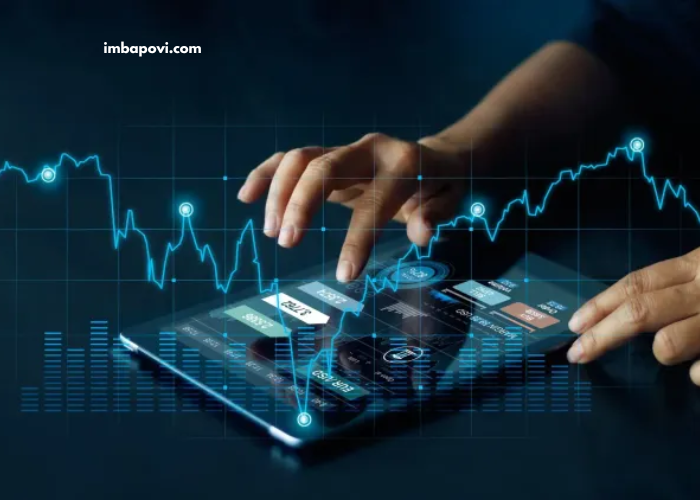The future of technology holds immense promise, as innovations continue to shape the way we live, work, and interact with the world. As we enter a new era of technological advancement, industries across the globe are witnessing a wave of cutting-edge solutions that are not only enhancing efficiency but also transforming entire ecosystems. From artificial intelligence (AI) to quantum computing, the technological breakthroughs of tomorrow have the potential to revolutionize every aspect of our lives.
In this article, we will explore the key technological innovations that are shaping the future, focusing on their applications, implications, and the exciting possibilities they bring. These trends will impact various industries, from healthcare and transportation to finance and entertainment. The following sections will provide insights into these advancements and what they mean for the future of humanity.
Artificial Intelligence (AI) and Machine Learning: Transforming Industries
Understanding Artificial Intelligence
Artificial intelligence has already made significant strides in recent years, and its future prospects are truly revolutionary. At its core, AI refers to machines or systems that can perform tasks typically requiring human intelligence. These tasks include problem-solving, decision-making, and learning from data. Machine learning (ML), a subset of AI, involves algorithms that enable systems to improve their performance over time by analyzing data patterns.
Applications of AI in Various Sectors
AI’s potential spans various industries, with several promising applications set to transform the way we live and work. In healthcare, for example, AI is being used to develop better diagnostic tools, predict patient outcomes, and personalize treatment plans. Through AI-powered algorithms, doctors can analyze medical images, detect early signs of diseases like cancer, and even predict the likelihood of specific health conditions. This can lead to more accurate diagnoses and timely interventions, saving countless lives.
In the financial sector, AI is already being leveraged to streamline operations, reduce fraud, and improve customer service. AI algorithms are capable of analyzing vast amounts of data in real time, providing financial institutions with valuable insights into market trends and consumer behavior. This allows banks to offer personalized financial products and services, while also minimizing risks associated with financial transactions.
Furthermore, AI is being integrated into autonomous vehicles, making self-driving cars a reality. These vehicles use machine learning algorithms to navigate roads, identify obstacles, and make decisions in real-time. The impact of AI on transportation is immense, as it has the potential to reduce accidents, alleviate traffic congestion, and improve overall mobility.
Ethical Considerations and Challenges
While AI offers tremendous benefits, it also raises important ethical concerns. As AI becomes more advanced, questions around privacy, security, and job displacement become increasingly relevant. For instance, AI-powered surveillance systems may raise concerns about individuals’ right to privacy. Similarly, as automation takes over routine tasks, there is a fear that large numbers of jobs will be displaced, leading to social and economic challenges.
To address these challenges, experts emphasize the need for ethical guidelines, transparency, and responsible AI development. Policymakers must ensure that AI technologies are developed in ways that benefit society as a whole while mitigating potential risks.
Quantum Computing: Unlocking New Possibilities
What is Quantum Computing?
Quantum computing is another technological breakthrough with the potential to change the future dramatically. Unlike classical computers, which process information in binary form (0s and 1s), quantum computers leverage the principles of quantum mechanics to perform calculations. Quantum bits, or qubits, can exist in multiple states simultaneously, allowing quantum computers to solve complex problems at speeds far beyond the capabilities of traditional computers.
Potential Applications of Quantum Computing
The applications of quantum computing are vast and varied, and their impact on industries will be profound. One of the most promising areas is cryptography. Quantum computers have the potential to crack existing encryption methods, which would force a complete overhaul of cybersecurity protocols. On the flip side, quantum computing also has the potential to create ultra-secure encryption systems that are virtually unbreakable.
Another area where quantum computing could have a transformative impact is drug discovery. By simulating molecular structures at an atomic level, quantum computers can help researchers design new drugs faster and more accurately. This could accelerate the development of treatments for diseases like cancer, Alzheimer’s, and other chronic conditions, ultimately improving global health outcomes.
In fields such as climate science, quantum computing could enable more accurate modeling of weather patterns, helping scientists predict climate changes and natural disasters with greater precision. This could provide valuable insights for disaster preparedness and environmental conservation.
Challenges and Roadblocks
Despite its immense potential, quantum computing is still in its infancy. The development of stable qubits and scalable quantum systems remains a significant challenge. Additionally, quantum computers require extremely low temperatures to function, which presents technical and logistical hurdles.
Nevertheless, significant progress is being made in the field, and several tech giants, including IBM, Google, and Microsoft, are investing heavily in quantum research. As quantum computing advances, it is likely to play a pivotal role in solving some of the most pressing problems facing humanity.
5G and Beyond: Transforming Connectivity
The Power of 5G
5G technology promises to revolutionize connectivity, offering speeds that are up to 100 times faster than current 4G networks. This new generation of wireless technology will enable seamless communication between devices, unlocking the potential of the Internet of Things (IoT) and fostering innovation in various sectors.
Applications of 5G
One of the most significant impacts of 5G will be on the IoT, a network of interconnected devices that communicate and share data. 5G’s high-speed capabilities and low latency will make it possible for billions of devices to connect and exchange information in real-time. This will lead to the creation of smart cities, where everything from traffic lights and public transportation to energy grids and waste management systems will be automated and optimized through IoT networks.
In healthcare, 5G will enable remote surgeries and telemedicine with minimal delays, allowing doctors to perform procedures and consult with patients across vast distances. The increased bandwidth will also facilitate the growth of augmented and virtual reality (AR/VR) applications, enabling immersive experiences in education, entertainment, and training.
Moreover, 5G will play a key role in the development of autonomous vehicles, as self-driving cars rely on fast and reliable communication between vehicles and infrastructure. With the low latency of 5G, vehicles can share data in real time, making transportation safer and more efficient.
The Road to 6G
While 5G is still in its early stages of global deployment, researchers are already looking ahead to 6G, which promises even faster speeds and more advanced capabilities. 6G will likely integrate artificial intelligence, robotics, and advanced satellite networks to further enhance global connectivity. The arrival of 6G is expected to usher in a new era of technological integration, enabling previously unthinkable innovations.
Blockchain and Decentralized Technologies: Redefining Trust
What is Blockchain?
Blockchain technology, the backbone of cryptocurrencies like Bitcoin and Ethereum, is poised to revolutionize many industries beyond finance. At its core, blockchain is a decentralized ledger system that securely records transactions across multiple computers. This ensures that the data is transparent, tamper-proof, and immutable.
Applications of Blockchain
Blockchain’s potential applications extend far beyond digital currencies. In supply chain management, blockchain can be used to track the origin and movement of goods, ensuring transparency and reducing fraud. In healthcare, blockchain can provide a secure and decentralized way to store patient records, improving privacy and reducing the risk of data breaches.
Another area where blockchain can have a profound impact is in the voting process. By using blockchain, elections can be conducted more securely, with each vote recorded on an immutable ledger. This would reduce the risk of voter fraud and ensure that the integrity of the democratic process is upheld.
The Future of Blockchain
The future of blockchain lies in its ability to decentralize more aspects of society, including finance, governance, and even social interactions. As more industries adopt blockchain technology, it is likely to play a crucial role in building trust and transparency in a digital world.
The Rise of Smart Devices and IoT: A Connected Future
The Internet of Things (IoT)
The Internet of Things refers to the network of physical objects embedded with sensors, software, and other technologies that allow them to collect and exchange data. From smart homes to industrial IoT applications, the rise of connected devices is transforming how we interact with the world around us.
How IoT is Shaping the Future
IoT is already making significant strides in various industries. In agriculture, IoT devices are used to monitor soil conditions, track crop health, and optimize irrigation systems. In manufacturing, IoT sensors can predict equipment failures, leading to proactive maintenance and reduced downtime.
In the home, IoT-powered smart devices are becoming more common. From smart thermostats and refrigerators to voice-controlled assistants like Amazon Alexa and Google Assistant, these devices are designed to make our lives more convenient, energy-efficient, and connected.
Challenges and the Future of IoT
The proliferation of IoT devices presents challenges in terms of security, data privacy, and standardization. As the number of connected devices grows, so too does the potential for cyberattacks and data breaches. However, as technology evolves, solutions to these challenges will emerge, allowing for a more secure and seamless IoT ecosystem.
Conclusion
The future of technology is brimming with exciting innovations that have the potential to shape tomorrow in ways we can only begin to imagine. From artificial intelligence and quantum computing to 5G connectivity and blockchain, these breakthroughs are poised to revolutionize industries, enhance our daily lives, and address some of the most pressing challenges facing humanity.
While the possibilities are vast, it is crucial that we approach these advancements with responsibility, ensuring that they are developed and implemented ethically. By fostering collaboration between governments, businesses, and tech innovators, we can harness the power of these technologies to build a better, more connected world for future generations.
As we look to the future, one thing is certain: technology will continue to evolve at an unprecedented pace, and the innovations shaping tomorrow will redefine the boundaries of what is possible.





